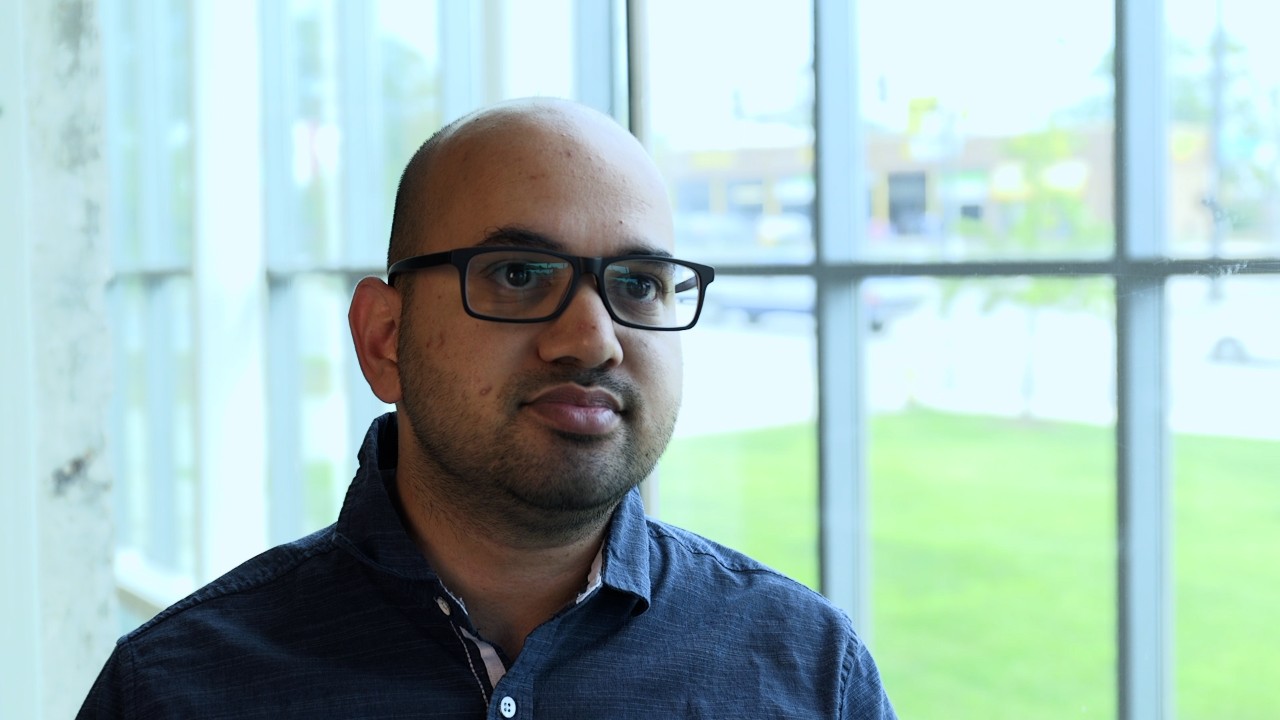
What is Chemical Engineering?
From shampoo to smartphones, Aashish Priye explains how chemical engineers impact everyday life
Making an impact on everyday life is the norm for chemical engineers. Assistant professor Aashish Priye explains how something as simple as shampoo or as complicated as a smart phone needs a chemical engineer.
How would you describe chemical engineering?
Aashish Priye: Chemical engineering is a very broad field where you learn how to use the scientific knowledge and mathematical tools to make our lives easier. You might not notice, but every day you interact with chemicals and products that are born out of chemical engineering that make our lives easier, safer, and longer. For example, a good shampoo that can take dirt off your skin and not harm your skin. It might seem simple, but it's a challenge and it's made possible by the work done by chemical engineers.
What is the difference between a chemical engineer and a scientist?
Priye: A lot of people think chemical engineering is a lot of chemistry and that's actually not true. Chemistry is a small part. The thing that distinguishes these fields from each other is the kind of problems it tries to solve. Science, engineering, and math are kind of interdisciplinary—they work off each other and they need each other to make progress.
Science wants to know why things happen. That normally has an effect of human life, but it may not—that's not the objective or the motive and the solution may not always have relevance right now. Whereas the prime motivation for most engineering problems is for human civilization. To make the human life better, safer, and longer. Most of the solutions to engineering problems have an immediate effect. You solve a problem, and you see it in the market relatively sooner than scientific problems.
The prime motivation for most engineering problems is for human civilization. Most of the solutions to engineering problems have an immediate effect. You solve a problem, and you see it in the market.
Aashish Priye Assistant Professor, Chemical Engineering
What are some common, real-world examples of chemical engineering?
Priye: I’m fascinated by the smartphone. It's a very sophisticated piece of technology that can fit in your pocket. But to engineer this device, you had to solve many problems.
- How do you fit two billion transistors in a small chip? Enter electrical engineer.
- How do you make a battery that can work with lithium-ion in the small format? Enter a chemical engineer
- How do you make a screen that can fold and still display pixels? Enter material engineer.
- How do you make an interface that even a five-year-old can use? Enter software engineers.
Mundane things that you don't think about a lot, lots of research and development has gone into it from all engineering sources to make something that you and I can use daily.
Related Stories
UC researchers develop speech therapy video game
May 7, 2024
With ultrasound and a video game featuring a goat on roller skates, researchers at the University of Cincinnati are developing methods to help children overcome difficulties in pronouncing certain sounds, including the difficult “R.”
UC engineering students can co-op in research labs around the...
May 7, 2024
More than 100 years ago, cooperative education (co-op) was invented at the University of Cincinnati's College of Engineering and Applied Science. Since then, UC has spent the last century fine-tuning and improving the program. The Global Research Labs Program is one of the most recent advancements in co-op opportunities for students.
Local news highlights UC's artificial intelligence programs
May 6, 2024
UC College of Engineering and Applied Science Professor Ali Minai tells WLWT and WVXU that AI is becoming a popular subject among new students.
